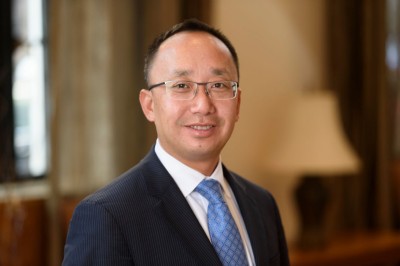
Researchers at Memorial Sloan Kettering (MSK) reported results, which were highlighted at the American Society of Clinical Oncology (ASCO) press cast, that eight weeks of acupuncture or cognitive behavioral therapy for insomnia (CBT-I) decreased the severity of insomnia in cancer survivors. While both acupuncture and CBT-I resulted in clinically meaningful and durable effects among this group, CBT-I was more effective, especially among people with mild insomnia symptoms.
“Insomnia has deleterious effects and occurs in up to 60 percent of cancer survivors,” said Jun Mao, MD, Chief of the Integrative Medicine Service at MSK. “The results of this trial found that both acupuncture and CBT-I produced beneficial and durable meaningful results. People with cancer and oncology clinicians can now use these findings to help inform their choice of insomnia treatment.”
Researchers conducted the randomized clinical trial of acupuncture versus CBT-I among 160 post-treatment cancer survivors who had been clinically diagnosed with insomnia disorder. Study participants, who were on average about 61 years old and about six years post-treatment, were seen over an eight-week period. They received either traditional Chinese acupuncture designed to treat insomnia, with an additional focus on pain, fatigue, and psychological stress, or CBT-I. CBT-I has two key components: sleep restriction and stimulus control. Sleep restriction limits the amount of time a person is in bed so that they have higher quality and more efficient sleep, since when they are actually in bed, they are in a deep sleep rather than tossing and turning. Stimulus control helps people stop engaging in behaviors that make sleep difficult, for example, checking phones or tablets before bedtime, or reading a book or watching TV in bed. Over time, the bed becomes a place only for sleep, not all kinds of other activities.
Before and after the treatment period, people reported the severity of their insomnia on a 28-point index. Dr. Mao and his colleagues saw that CBT-I reduced insomnia by 11 points (from about 19 on the scale to 8) compared with acupuncture, which decreased it by approximately 8 points (from 18 to 10). As both proved successful, Dr. Mao said that giving people options for managing their insomnia is beneficial.
People with mild insomnia were significantly more likely to respond to CBT-I than acupuncture; however, researchers said that people with moderate to severe insomnia had similar response rates to CBT-I and acupuncture. Both groups had few mild adverse events and maintained improvements up to 20 weeks. Both groups had similar improvement in quality of life, including physical health and mental health, during the study.
“We are encouraged by the results of this study. CBT-I was overall more effective and a clear winner for people with mild insomnia. Acupuncture can be a reasonably good choice for people with moderate to severe insomnia,” said Dr. Mao. “We hope to continue our studies to find out how best to personalize treatment to improve sleep for people with cancer and survivors.”
The Importance of Patient-Reported Outcomes
Although symptom management is a cornerstone of high-quality cancer care, prior research has shown that doctors miss up to half of symptoms experienced by patients during cancer treatment. “Many cancer survivors have some form of insomnia that is often undiagnosed and undertreated,” said Dr. Mao.
Patient-reported outcome programs empower people to actively report their symptoms and allow doctors and nurses to intervene early when necessary, ultimately improving quality of life for patients.
Acupuncture and CBT-I at MSK
Acupuncture is a component of traditional Chinese medicine and involves the use of needles, sometimes with electricity, to stimulate points on the body to induce relaxation and restore balance.
There is evidence that acupuncture can reduce such symptoms as pain, nausea and vomiting, fatigue, hot flashes, dry mouth, and other side effects caused by radiotherapy and chemotherapy. It may also assist with lifestyle changes, such as smoking cessation.
Acupuncture treatments are generally safe and well tolerated by most people, including children and the elderly. To manage specific symptoms, individuals often need a series of six to ten treatments, initially on a weekly basis. Once they are responding, some people may not need additional sessions, while others may need ongoing maintenance treatment.
CBT-I is a newer type of psychotherapy that has become the gold standard for the treatment of insomnia. While this type of CBT-I psychotherapy is not offered widely, MSK has a dedicated staff of clinicians who help in this area and are knowledgeable about how insomnia effects overall health.
MSK psychiatrists and psychologists provide specialized emotional and mental health support for all patients, no matter their stage or diagnosis. MSK believes in caring for the whole person, not just the disease or symptom. Integrative medicine weaves natural treatments such as acupuncture, massage, and yoga into your care plan. All of MSK’s holistic health services and programs are based on the latest scientific evidence.
This study was funded by the Patient-Centered Outcomes Research Institute.
ASCO ABSTRACT # 10001



